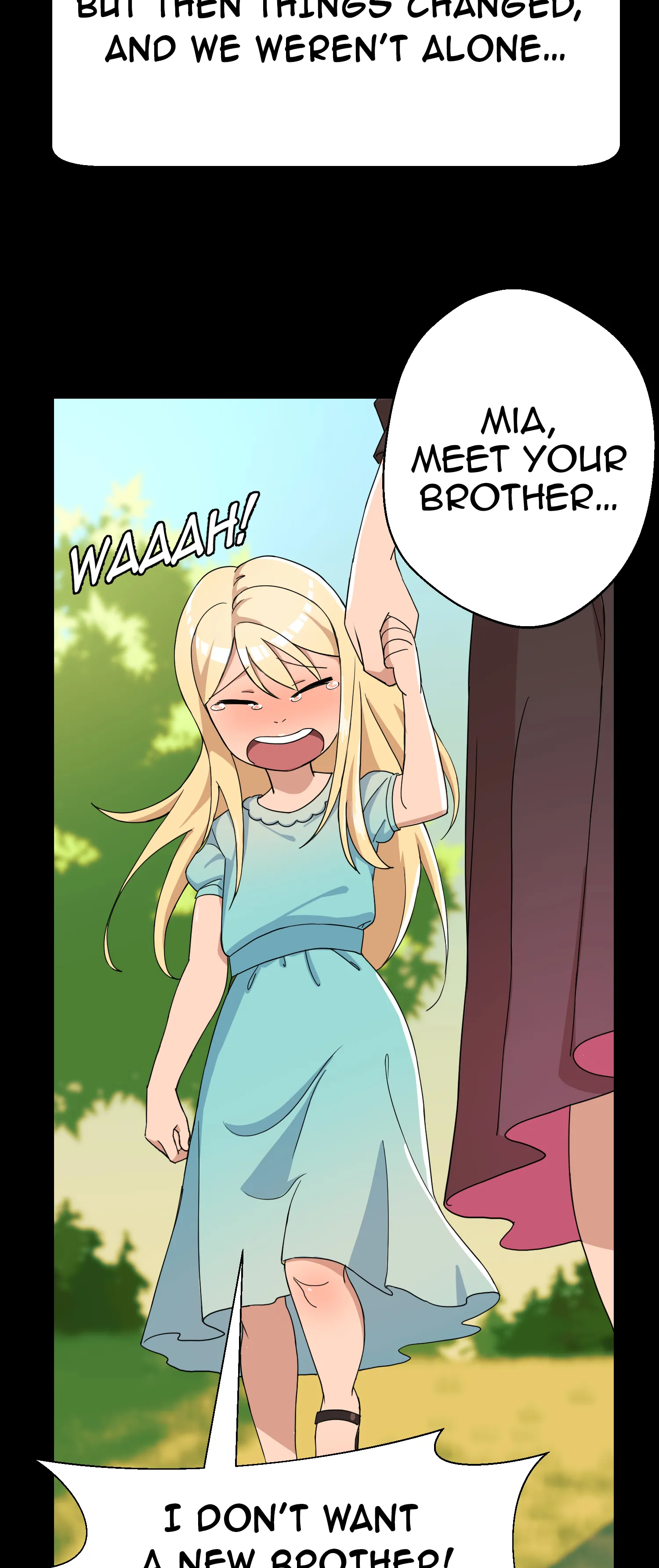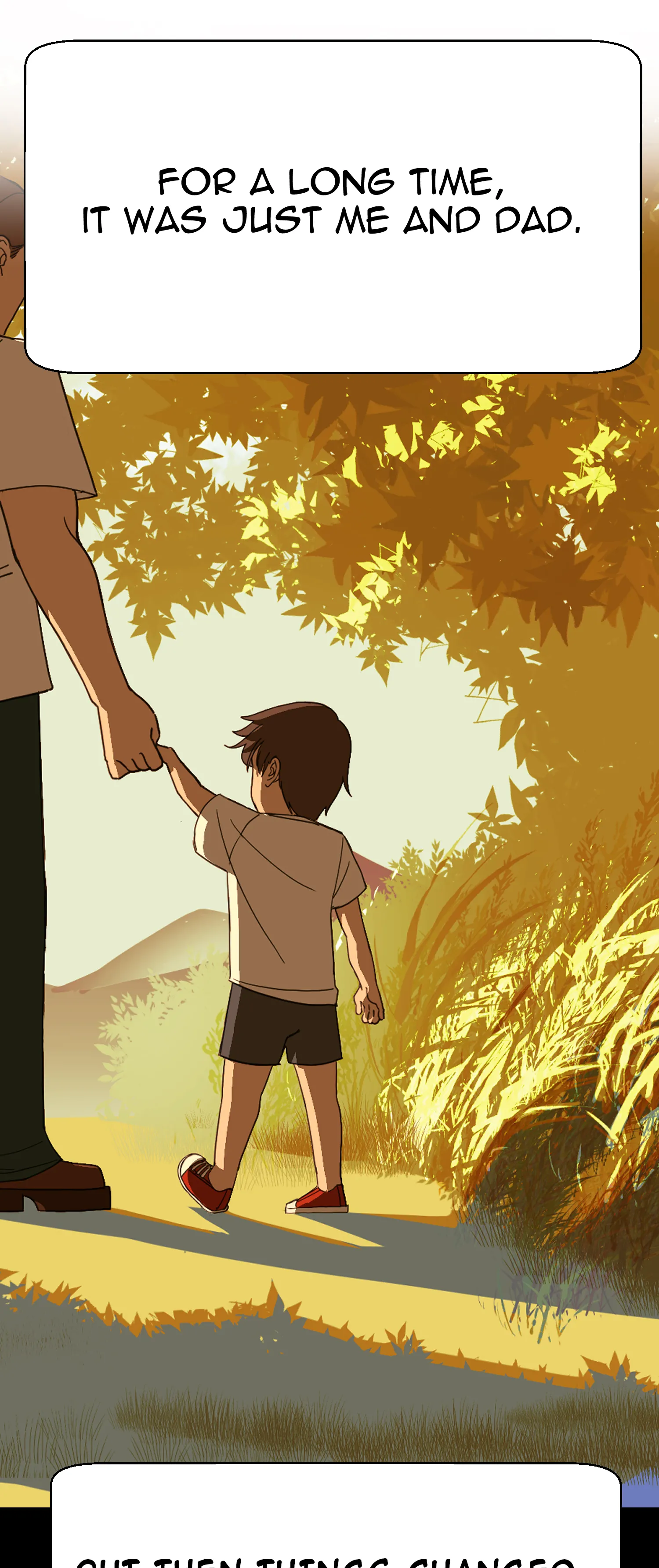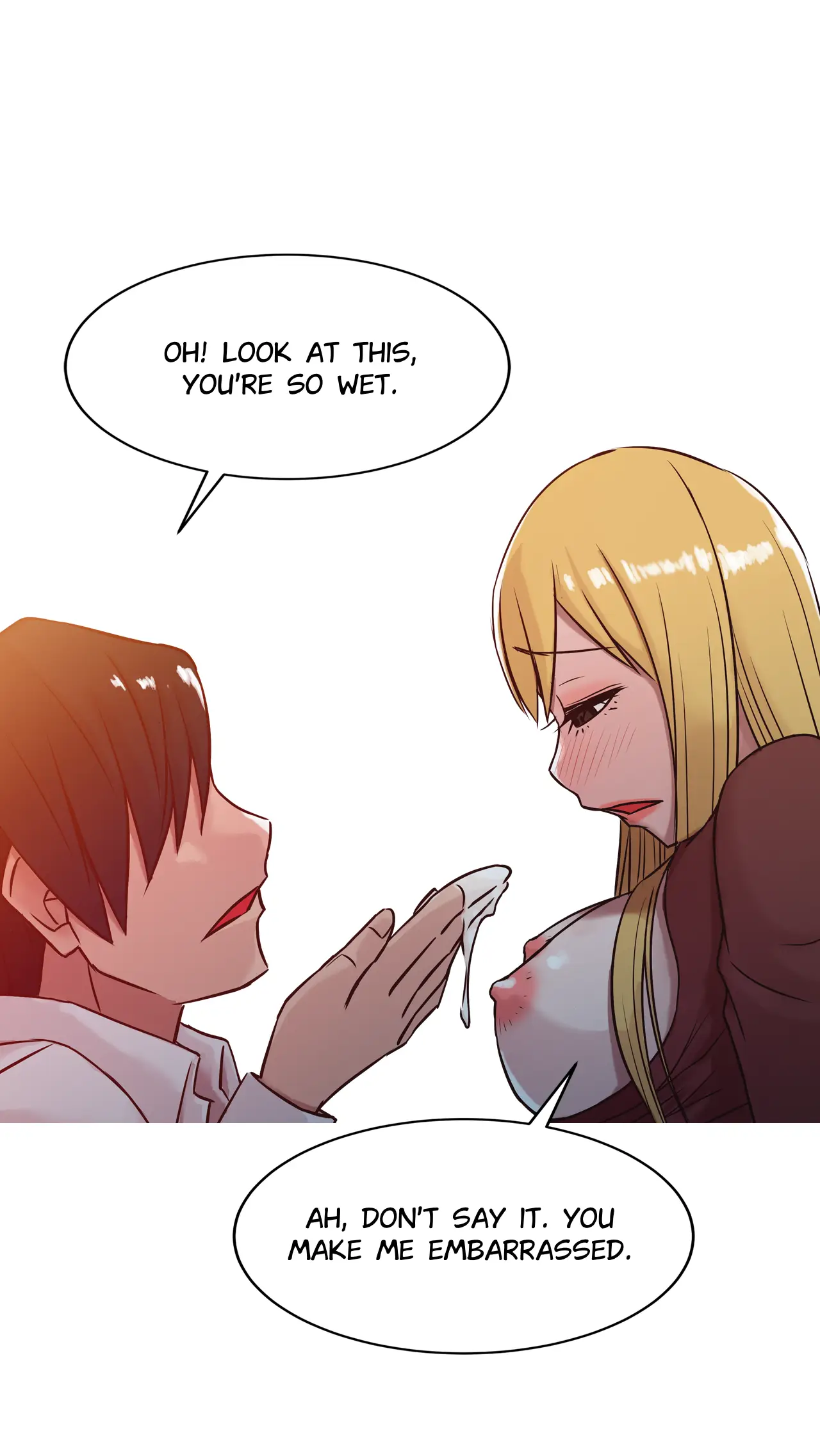Learn The Ropes: Getting Started With Teach Me First Comic Uncensored
Have you ever felt a pull towards stories that break free from typical boundaries, perhaps narratives that explore topics with a bit more raw honesty? It's a rather common feeling, you know, this desire to see things presented without filters. For many, that curiosity extends to the world of comics, where creators sometimes push past what's usually shown. It's about finding those unique pieces that really speak their mind, offering a different kind of insight, and you might be wondering how to even begin looking into such works. This article, it's almost like a guide, a way to help you explore that very specific interest in a thoughtful manner.
The idea of "teach me first comic uncensored" really gets at a fundamental human desire to understand something new, to be shown the way, so to speak. It’s about more than just finding content; it’s about gaining a sort of knowledge, much like when you learn any new subject. Just as the teach system is designed for various users to perform various functions regarding teacher certification and fingerprinting, or how a teach grant provides money to students who agree to a teaching service obligation, there’s a process to truly learning about any new field, even one as specific as uncensored comics. We're here to help you sort of get your bearings.
So, if you're keen to understand the history, the artistry, or the societal impact of comics that dare to be different, you've certainly landed in the right spot. This piece will walk you through what "uncensored" might mean in this context, why creators choose this path, and how you can approach these works with a discerning eye. It's about helping you acquire knowledge or skill, much like how teach applies to any manner of imparting information so that others may learn. We’ll look at how to discover these stories and appreciate their place in the broader landscape of storytelling, really.
- Shanin Blake Onlyfans Leak.linkmaz
- Is David Muir Lgbtq.linkmaz
- Viralkandcom Indian The Ultimate Guide To Exploring Indias Viral Content Phenomenon.linkmaz
- The Fan Bus Tv Leaks.linkmaz
- Supreme Values Mm2.linkmaz
Table of Contents
- Understanding the Call for Uncensored Comics
- Who is Looking to Learn About Uncensored Comics?
- The Meaning of "Uncensored" in Comics
- How to Approach Learning About Uncensored Comics
- The 'Teach' Connection to Exploring New Genres
- Frequently Asked Questions About Uncensored Comics
- Taking the Next Step in Your Learning Journey
Understanding the Call for Uncensored Comics
There's a growing interest, it seems, in media that doesn't hold back, that shows life or fantasy in a more unfiltered way. This desire for "teach me first comic uncensored" reflects a yearning for authenticity, for narratives that aren't watered down or constrained by conventional expectations. It's not just about shock value, you know, but often about exploring deeper truths, societal critiques, or personal stories that might be too intense for mainstream outlets. People want to see the full picture, sometimes the messy parts, the uncomfortable parts, because that's where a lot of genuine insight comes from, really.
The appeal is that these works can often tackle complex themes with a frankness that other forms of media might shy away from. They can push boundaries of storytelling, visual art, and even social commentary. This kind of material can be quite thought-provoking, prompting conversations about freedom of expression, artistic integrity, and the very nature of storytelling itself. It’s a bit like wanting to learn the complete history of a subject, not just the edited version, which is actually a very natural human impulse.
Who is Looking to Learn About Uncensored Comics?
The people searching for "teach me first comic uncensored" are typically curious individuals, perhaps those with a strong interest in art, literature, or social studies. They might be students, aspiring artists, or simply readers who have exhausted more traditional comic offerings and are looking for something different. These folks are often open-minded, ready to engage with challenging material, and they appreciate the deeper meanings that can be found in works that aren't afraid to be bold. They're seeking, in a way, a deeper level of engagement with the medium, you know.
- Camilla Araujo Xxx Erome.linkmaz
- La Varita De Emiliano Video A Deep Dive Into The Magical World.linkmaz
- Movie Rules 2025 The Future Of Film And What You Need To Know.linkmaz
- Lara Rose Onlyfans The Rise Of A Digital Phenomenon.linkmaz
- Is Luke Combs A Democrat.linkmaz
Their pain points often involve not knowing where to start, how to distinguish truly impactful works from those that are merely provocative, or how to find reliable information about this niche. They might also be concerned about the quality of the content, wanting something with artistic merit rather than just sensationalism. Their search intent is largely informational; they want to be educated, to be guided, and to understand the landscape before jumping in. It’s about gaining perspective, and in some respects, a kind of wisdom about the genre.
A quick look at trends, for instance using a tool like Google Trends, might show spikes in searches for terms like "underground comics history," "independent graphic novels," or "controversial comic artists." This suggests a consistent, though perhaps niche, interest in works that exist outside the mainstream. People are always looking for new perspectives, and this genre, it tends to offer plenty of those, doesn't it?
The Meaning of "Uncensored" in Comics
When we talk about "uncensored" in the context of comics, it's important to clarify what that actually means. It’s not simply about content that is shocking or gratuitous. Rather, it often refers to works that are created without the oversight of traditional publishing standards, industry codes, or self-imposed limitations that might restrict certain themes, language, or visual depictions. It's about artistic freedom, in a way, and the creator's ability to express their vision without external interference, which is a big deal for many artists.
Historical Context and the Comics Code Authority
To truly grasp the concept of "uncensored" comics, you really need to understand the historical backdrop. For a long time, particularly from the 1950s onwards, the American comic book industry was heavily influenced by the Comics Code Authority (CCA). This was a self-regulatory body formed in response to public outcry and government scrutiny over perceived harmful content in comics. The CCA imposed strict rules on what could and could not be depicted, affecting everything from violence and horror to romance and even the portrayal of law enforcement. This had a very significant impact, you know.
Comics that predated the CCA, or those published by independent creators and underground presses that deliberately chose not to adhere to the Code, are often considered "uncensored" in this historical sense. These works were free from the restrictions of the CCA, allowing creators to explore mature themes, social commentary, and more explicit content. This historical context is quite important because it defines what "censored" even meant for a long period, and what it meant to go against that. It's a bit like understanding the rules before you can appreciate breaking them, isn't it?
Artistic Freedom and Creator Expression
Beyond the historical context, "uncensored" also refers to the broader concept of artistic freedom. Many creators choose to work outside mainstream publishing precisely because they want to tell stories their way, without editorial interference or market pressures to soften their message. This allows for a raw, authentic voice that can tackle complex or controversial subjects head-on. It's about maintaining the integrity of their vision, which is something artists really value, you know.
These comics might explore themes of political satire, social injustice, sexuality, mental health, or violence with a depth and realism not always found in more widely distributed works. The "uncensored" nature means the creators are not holding back on their portrayal of these topics, offering a more direct and often more impactful experience for the reader. It's about giving someone knowledge or training someone, but in this case, the knowledge comes directly from the creator's unvarnished perspective. They’re basically teaching you through their art, in a way.
How to Approach Learning About Uncensored Comics
If you're looking to "teach me first comic uncensored," the approach should be thoughtful and informed. It's not about randomly picking up any comic that claims to be uncensored. Instead, it’s about understanding the context, the creator's intent, and what you hope to gain from the experience. Just as you'd learn if teaching is right for you by exploring different aspects of the profession, you should explore this genre with a plan.
Finding Resources and Platforms
One of the first steps in learning about this genre is knowing where to find reliable information and the comics themselves. Libraries, especially university or specialized art libraries, often have collections of underground and independent comics. Online archives and digital comic platforms may also host a selection, though you'll need to check their content policies. There are also many independent comic shops and online marketplaces that specialize in these kinds of works. The world's most popular online marketplace for original educational resources, for instance, has more than four million resources available, and while not all are comics, it shows the power of specialized platforms for specific interests.
When searching, look for terms like "underground comix," "alternative comics," "indie graphic novels," or specific publishers known for pushing boundaries. Reading reviews from reputable comic critics or academic papers on comic history can also guide you towards significant works. It's about finding those trusted sources, you know, much like how you would access our teach online system and view a list of teach services relating to certification and fingerprinting to get accurate information about teaching certification.
The Role of Context and Critical Thinking
Perhaps the most important aspect of learning about "uncensored" comics is to approach them with a strong sense of context and critical thinking. Understand when the comic was created, the social and political climate of that time, and the creator's background and intentions. This helps you move beyond a superficial reading and appreciate the deeper layers of meaning. It's about truly understanding the message, not just reacting to the visuals, which is a bit of a different skill, really.
Ask yourself: What is the comic trying to say? Is the "uncensored" aspect serving a narrative or artistic purpose, or is it merely for shock value? How does it challenge conventional norms or reflect societal issues? Engaging with these questions will enrich your experience and help you develop a more nuanced appreciation for the genre. It's about becoming an informed reader, which is, in a way, a form of self-education, isn't it?
The 'Teach' Connection to Exploring New Genres
The very phrase "teach me first comic uncensored" resonates deeply with the core principles of education. To teach, instruct, educate, train, discipline, or school all mean to cause someone to acquire knowledge or skill. When you seek to understand uncensored comics, you are essentially seeking to be taught. You want to learn about it, to have someone explain it or show you how to do it, usually by pointing you to the right resources or frameworks for understanding. It's a fundamental desire to grow in your understanding, you know.
Think about how the #teach system stands as the nation’s premier teaching certification program. It provides a structured path for those passionate about shaping young minds or influencing education policy. Similarly, while there isn't a formal "certification" for understanding uncensored comics, there is a structured way to approach learning about them. You can log in to your teach account (metaphorically, of course) and view your account information page, which in this case might be your personal research notes or a curated list of resources. From your account information page, you will be able to check on the status of your learning journey, seeing how far you've come in understanding the genre.
Teach is here to make it easy to explore teaching and take steps to become a teacher. In a similar vein, this article aims to make it easy for you to explore the world of uncensored comics and take steps to become a more informed reader. We support future teachers from all backgrounds, from high school students to college grads, career changers. And likewise, we aim to support anyone, regardless of their background, who wants to delve into this fascinating, often challenging, but ultimately rewarding genre of comics. It's about providing a pathway, really, for your own personal learning adventure.
Frequently Asked Questions About Uncensored Comics
What makes a comic "uncensored" compared to a regular one?
A comic is typically called "uncensored" when it hasn't gone through the kind of review or editing that removes certain content, like explicit visuals, strong language, or very mature themes. Regular comics, especially those from larger publishers, often adhere to industry standards or ratings systems to appeal to a wider audience, including younger readers. Uncensored comics, on the other hand, are often created with complete artistic freedom, meaning the creators can show or say exactly what they want without external restrictions. It's a bit like the difference between a movie with a rating and one released without any rating, you know.
Are uncensored comics always inappropriate or just for adults?
Not necessarily. While many uncensored comics do contain mature content and are intended for adult audiences, the term "uncensored" primarily refers to the absence of external content restrictions. This can mean a comic explores complex political ideas, philosophical concepts, or raw emotional experiences that aren't necessarily "inappropriate" but are certainly not for children. Some uncensored works might simply have a unique art style or narrative structure that doesn't fit mainstream tastes. It's about artistic choice, so, not always about being explicit, really.
Where can I find reputable sources to learn about the history of uncensored comics?
To learn about the history of uncensored comics, you might start with academic texts and critical analyses from university presses or scholarly journals. Many well-regarded books cover the history of underground comix and independent graphic novels. Online, look for reputable comic history websites, archives, or even specialized forums where knowledgeable enthusiasts discuss the topic. Libraries, especially those with strong graphic novel collections, are also excellent resources. It's about finding places that offer a deeper insight, which is pretty much what you'd want for any subject you're trying to learn about, isn't it?
For a good starting point, you might consider looking into the history of underground comix, which really took off in the 1960s. A great resource could be a university library's collection on alternative media or a well-regarded book on the subject. You could also check out a site like The Comics Journal, which often publishes critical essays and historical pieces on the genre. That’s a fairly solid place to start your research, actually.
Taking the Next Step in Your Learning Journey
So, if you're feeling ready to explore the world of "teach me first comic uncensored," remember that it's a journey of discovery. It's about expanding your understanding of storytelling and artistic expression. Whether you’re passionate about shaping your own understanding of culture, or just helping yourself to see new perspectives, this kind of exploration can be very rewarding. Just as you might discover why teaching is still one of the most meaningful careers, you can discover a new appreciation for the diverse and often challenging world of comics. It's about taking those first steps, which can be done by logging in to your teach account (your personal learning space) and viewing your account information page, which is your progress and resources.
You may access information based upon the role you hold, and in this case, your role is that of a curious learner. From your account information page, you will be able to check on the status of your exploration, seeing how much you've learned and what new avenues you want to pursue. We hope this guide has given you a solid foundation, a way to begin your own unique path into this fascinating genre. Learn more about diverse forms of storytelling on our site, and link to this page about us to see how we support learning. It's about continuing to grow, always.
- Jameliz Smith.linkmaz
- Subhashree Sahu Viral.linkmaz
- Camilla Araujo Xxx Erome.linkmaz
- Cottontailva Of Leaks.linkmaz
- Camilla Araujo Only Fans Porn Videos.linkmaz

Honeytoon - "Teach Me First!", "Ep #1"

Honeytoon - "Teach Me First!", "Ep #1"

Read Manga & Webtoons: Your Ultimate Guide To Free Comics!